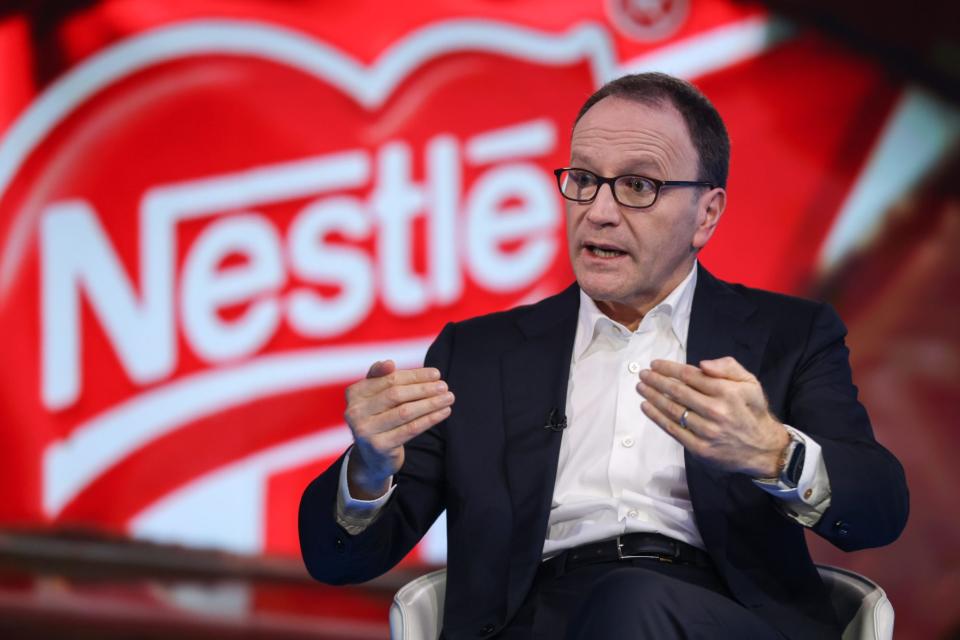Nestlé’s new foods are getting Ozempified, with slashed portions priced specifically for those on weight-loss drugs

Ozempic and Wegovy users are eating less, but food giant Nestlé may have figured out a way to cash in on the growing appetite for weight-loss medications. The company will launch a brand of smaller portioned, high-protein frozen foods specifically for those taking the appetite-quelling GLP-1 agonists, it announced Tuesday.
Nestlé, which produces DiGiorno pizzas and KitKats, among other frozen meal and snack brands, will roll out its Vital Pursuit line of weight-loss-drug-friendly frozen pizzas and pastas this year. The meals will retail for $4.99, a dollar more than a DiGornio personal pepperoni pizza at Target.
"We're leveraging our deep understanding of consumers and nutritional science to stay ahead of the trends that are shaping consumer behaviors, and innovating across our portfolio to deliver products people will love,” Nestlé North America CEO Steve Presley said in a press release.
Frenzy over medications to manage weight loss and diabetes has reached new heights since Novo Nordisk introduced Ozempic in 2017. Ozempic made up 41% of Novo Nordisk’s 2023 sales, worth about $14 billion. The company reported 40 million users, leading to a shortage of the drug, as well as Wegovy, its weight-loss-specific counterpart, and competitor Eli Lilly’s Zepbound. Hims & Hers Health Inc. is cashing in on the craze, announcing Monday it would provide a compounded version of the GLP-1 drugs for $199 a month, a fraction of Ozempic’s $1,350 price tag.
Nestlé announced in October that it was developing “companion products” to boost nutrients for those taking GLP-1s, particularly as Ozempic users have reported lean muscle loss, as well as aversions to fat- and protein-rich foods. Nestlé’s global CEO Mark Schneider said in February Ozempic would likely drive the sales of the company’s nutrition products.
“When you eat less, you have certain needs of vitamins, minerals, and supplements,” Schneider told Bloomberg. “You want to be sure that the weight loss gets supported. You want to be sure that you limit the loss of lean muscle mass.”
Confronting Ozempic anxiety
The company’s pivot to weight-loss-drug-friendly foods was preceded by a wave of anxiety from investors, who sent Nestlé’s stock into a tizzy in October as it dropped to a near two-year low. The dip came days after John Furner, CEO of Walmart’s U.S. operation, said the big-box retailer was feeling changes from the growing demand for weight-loss drugs.
“We definitely do see a slight change compared to the total population; we do see a slight pullback in overall basket,” Furner told Bloomberg. “Just less units, slightly less calories.”
A February Morgan Stanley report, using data from market research firm Numerator, backed up Furner’s comments and found Ozempic users slashed grocery store spending by up to 9%, with snacks and sweets taking the biggest hit, and vegetables and protein sales ticking up. Chocolate-maker Lindt & Spruengli, beer giant Anheuser-Busch InBev, Unilever, and yogurt producer Danone all experienced share price tumbles after Furner’s comment.
Nestlé isn’t the first company to make adjustments to accommodate the changing market. WW International, formerly WeightWatchers, introduced a new food plan for those on weight-loss drugs, while luxury gyms are launching clinics with access to medical professionals who can prescribe the medication. In April, struggling vitamin and supplement chain GNC said it would add a section to its 2,300 stores specifically for weight-loss drug users, stocking shelves with protein shakes and training staff on the drugs’ side effects, such as digestive problems, to promote specific supplements.
“You’re dealing with GLP-1 side effects. Now what?” the company advertises in new store displays. “We can help.”
This story was originally featured on Fortune.com

 Yahoo Finance
Yahoo Finance 